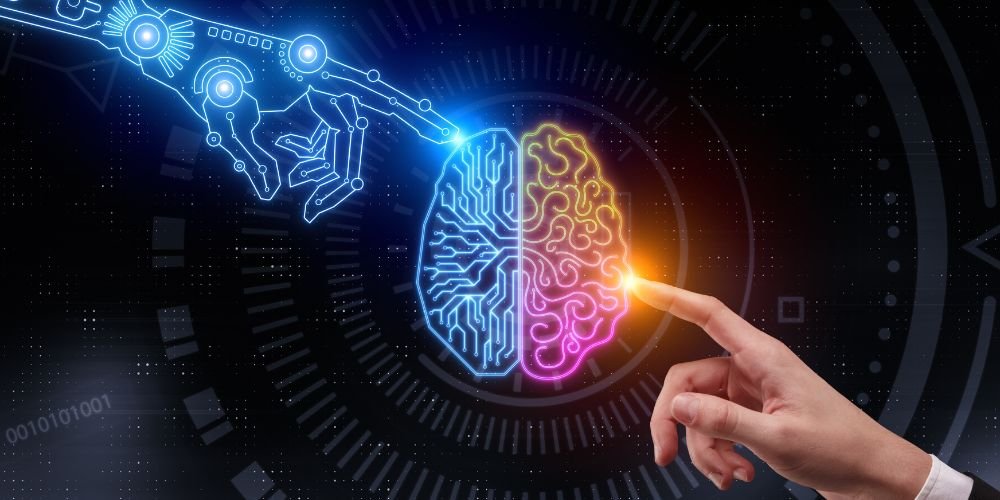Artificial Intelligence (AI) has appeared as a transformative force in the healthcare sector, revolutionizing how medical professionals diagnose, treat, and manage patient care. This article conducts a complete analysis of the current state of Artificial Intelligence in the Healthcare market, exploring key trends, market dynamics, and challenges, and offering insights into the future outlook of this rapidly advancing sector.
Market Overview
The integration of Artificial Intelligence in Healthcare represents a paradigm shift, leveraging machine learning algorithms and data analytics to enhance clinical decision-making and improve patient outcomes. From diagnostic imaging and drug finding to personalized medicine and predictive analytics, AI applications are reshaping the landscape of healthcare delivery. The global healthcare AI market is witnessing significant growth as stakeholders recognize the potential for improved efficiency and patient care.
The Techgolly market research team’s preliminary assessment indicates that the global Artificial Intelligence market size in healthcare was valued at least USD 18 billion in 2023 and is projected to reach up to USD 242 billion by 2030. The growth will continue at a compound annual growth rate (CAGR) of 43% to 45% from 2023 to 2030.
Key Market Trends
Several influential trends characterize AI in the healthcare market:
Diagnostic Imaging Advancements
AI has made substantial strides in diagnostic imaging, aiding radiologists in interpreting medical images with higher accuracy and speed. Computer-aided diagnosis powered by AI algorithms assists in detecting diseases, such as cancer, by analyzing complex imaging data.
Personalized Medicine and Treatment Plans
AI is driving the adoption of personalized medicine by analyzing individual patient data to tailor treatment plans. Machine learning algorithms assess genetic information, medical history, and lifestyle factors to recommend customized interventions, optimizing therapeutic outcomes.
Predictive Analytics for Disease Prevention
Predictive analytics powered by AI is becoming a cornerstone for disease prevention and proactive healthcare management. By analyzing patient data, AI algorithms can predict the likelihood of disease onset, enabling healthcare providers to implement preventive measures and interventions.
Natural Language Processing for Clinical Documentation
Natural Language Processing (NLP) streams clinical documentation by extracting relevant information from unstructured text. It enhances the efficiency of healthcare workflows, facilitates accurate medical coding, and supports comprehensive patient records.
Challenges
Despite the positive trends, the Artificial Intelligence in Healthcare market faces particular challenges:
Data Security and Privacy Concerns
As AI systems handle sensitive patient data, ensuring robust data security and privacy is paramount. The potential for unauthorized entry and data breaches poses a significant challenge, necessitating the development of stringent security measures and compliance frameworks.
Regulatory Compliance
The regulatory landscape for Artificial Intelligence in Healthcare is evolving, and compliance with diverse regulations poses challenges for stakeholders. Striking a balance between innovation and adherence to regulatory standards is crucial to ensure AI technologies’ ethical and responsible deployment.
Integration with Existing Systems
Integrating AI technologies with existing healthcare systems and workflows can be complex. Ensuring seamless interoperability and minimal disruption to established practices are challenges that healthcare institutions must address during AI implementation.
Future Outlook
The Artificial Intelligence in Healthcare market holds several key developments for the future:
AI-Driven Drug Discovery
AI is poised to play a pivotal role in accelerating drug discovery processes. Machine learning algorithms can explore vast datasets to identify potential drug candidates, predict their efficacy, and streamline the drug development pipeline.
Enhanced Virtual Health Assistants
AI-powered virtual health assistants will become more sophisticated, offering personalized health advice, medication reminders, and real-time monitoring. These AI-driven virtual assistants will contribute to patient engagement and improved adherence to treatment plans.
AI in Mental Health
The integration of AI in mental health applications is expected to grow, providing support for early detection, monitoring, and treatment of mental health conditions. AI-powered tools can analyze speech patterns, facial expressions, and behavioral data to diagnose and manage mental health disorders.
Conclusion
Artificial Intelligence in Healthcare is reshaping the healthcare landscape, offering innovative diagnosis, treatment, and patient care solutions. As AI in the healthcare market evolves, addressing data security, regulatory compliance, and seamless integration challenges will be crucial. The future outlook is optimistic, with AI poised to play an increasingly central role in advancing medical research, improving clinical workflows, and enhancing patient outcomes. The synergy between AI technologies and healthcare promises a more efficient, personalized, and accessible healthcare system, ushering in a new era of medical innovation.





